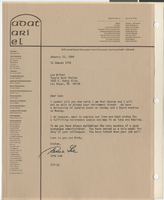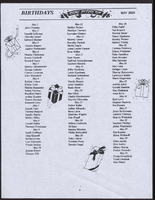Search the Special Collections and Archives Portal
Search Results

Photograph of Chanukah party, 1980s
Description
Identifications on reverse of photograph: Back row, L-R: Cantor Simon Bergman, Lois Bergman, Etta Harmell, Stefanie Evans holding Erica Evans, Jeremy Walton held by Sandi Walton, Carolyn Willougby; Front, L-R: Faye Swartzer, Jerri Swartzer, Ira Sheer, Elaine Sheer, Rebecca Cramer, Sandy Cramer, Michele Willougby and Mark Willougby

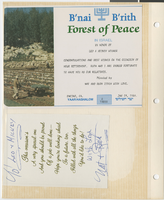
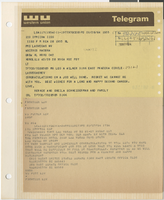
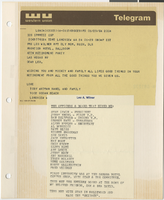
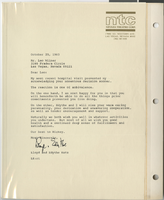
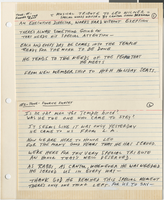
Sparer, Jon
Jon Sparer is an architect in Las Vegas, Nevada who has worked on numerous hotels and casinos. He moved to Las Vegas in July 1981 and worked for the architecture firm Rissman and Rissman before joining Marnell Corrao. After briefly retiring in 1999, Sparer opened his own architecture firm and was contacted by Congregation Ner Tamid (of which he was a casual member) to design their new temple in Green Valley. Jon was married to another successful architect, John Klai. Both were very instrumental in the opening of The Center.
Person

